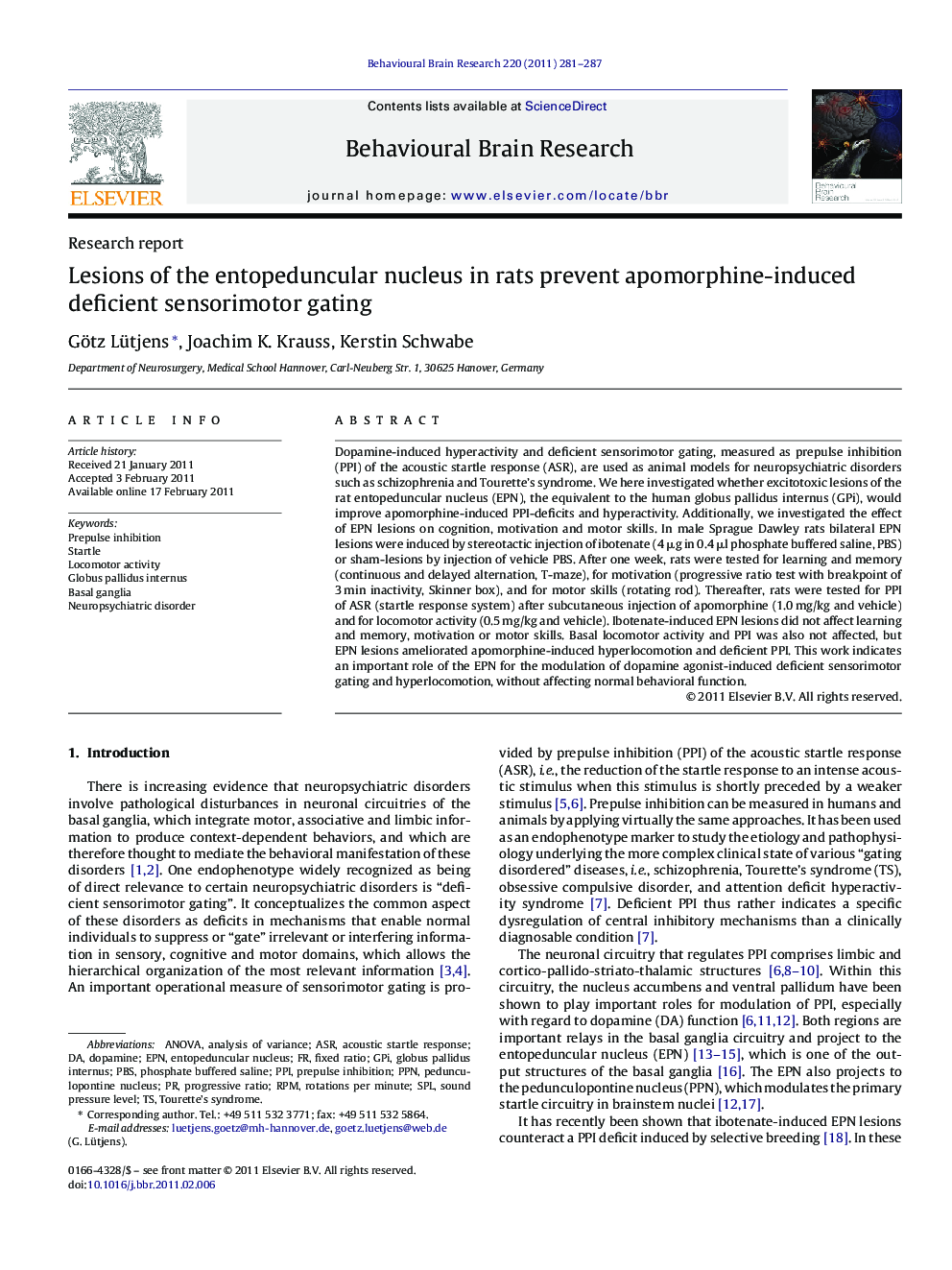| Article ID | Journal | Published Year | Pages | File Type |
|---|---|---|---|---|
| 4313749 | Behavioural Brain Research | 2011 | 7 Pages |
Dopamine-induced hyperactivity and deficient sensorimotor gating, measured as prepulse inhibition (PPI) of the acoustic startle response (ASR), are used as animal models for neuropsychiatric disorders such as schizophrenia and Tourette's syndrome. We here investigated whether excitotoxic lesions of the rat entopeduncular nucleus (EPN), the equivalent to the human globus pallidus internus (GPi), would improve apomorphine-induced PPI-deficits and hyperactivity. Additionally, we investigated the effect of EPN lesions on cognition, motivation and motor skills. In male Sprague Dawley rats bilateral EPN lesions were induced by stereotactic injection of ibotenate (4 μg in 0.4 μl phosphate buffered saline, PBS) or sham-lesions by injection of vehicle PBS. After one week, rats were tested for learning and memory (continuous and delayed alternation, T-maze), for motivation (progressive ratio test with breakpoint of 3 min inactivity, Skinner box), and for motor skills (rotating rod). Thereafter, rats were tested for PPI of ASR (startle response system) after subcutaneous injection of apomorphine (1.0 mg/kg and vehicle) and for locomotor activity (0.5 mg/kg and vehicle). Ibotenate-induced EPN lesions did not affect learning and memory, motivation or motor skills. Basal locomotor activity and PPI was also not affected, but EPN lesions ameliorated apomorphine-induced hyperlocomotion and deficient PPI. This work indicates an important role of the EPN for the modulation of dopamine agonist-induced deficient sensorimotor gating and hyperlocomotion, without affecting normal behavioral function.
Research highlights► Lesions of the EPN in rats prevent apomorphine-induced deficient sensorimotor gating. ► Lesions of the EPN in rats prevent apomorphine-induced deficient hyperlocomotion. ► Lesions of the EPN in rats do not affect learning and memory. ► Lesions of the EPN in rats do not affect motivation. ► Lesions of the EPN in rats do not affect motor skills.
